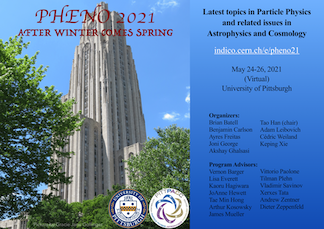Speaker
Description
Perturbation theory for gravitating quantum systems tends to fail at very late times (a type of perturbative breakdown known as secular growth). We argue that gravity is best treated as a medium/environment in such situations, where reliable late-time predictions can be made using tools borrowed from quantum optics. To show how this works, we study the explicit example of a qubit hovering just outside the event horizon of a Schwarzschild black hole (coupled to a real scalar field) and reliably extract the late-time behaviour for the qubit state. At very late times, the so-called Unruh-DeWitt detector is shown to asymptote to a thermal state at the Hawking temperature.
Summary
This paper shows how tools from quantum optics can be potentially applied to effective field theories in order to reliably make late-time predictions (in cases when ordinary perturbation theory can fail).

